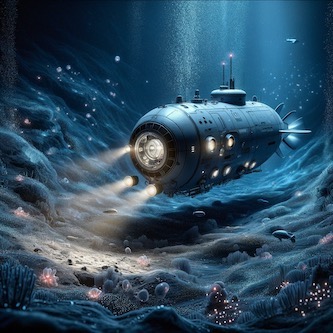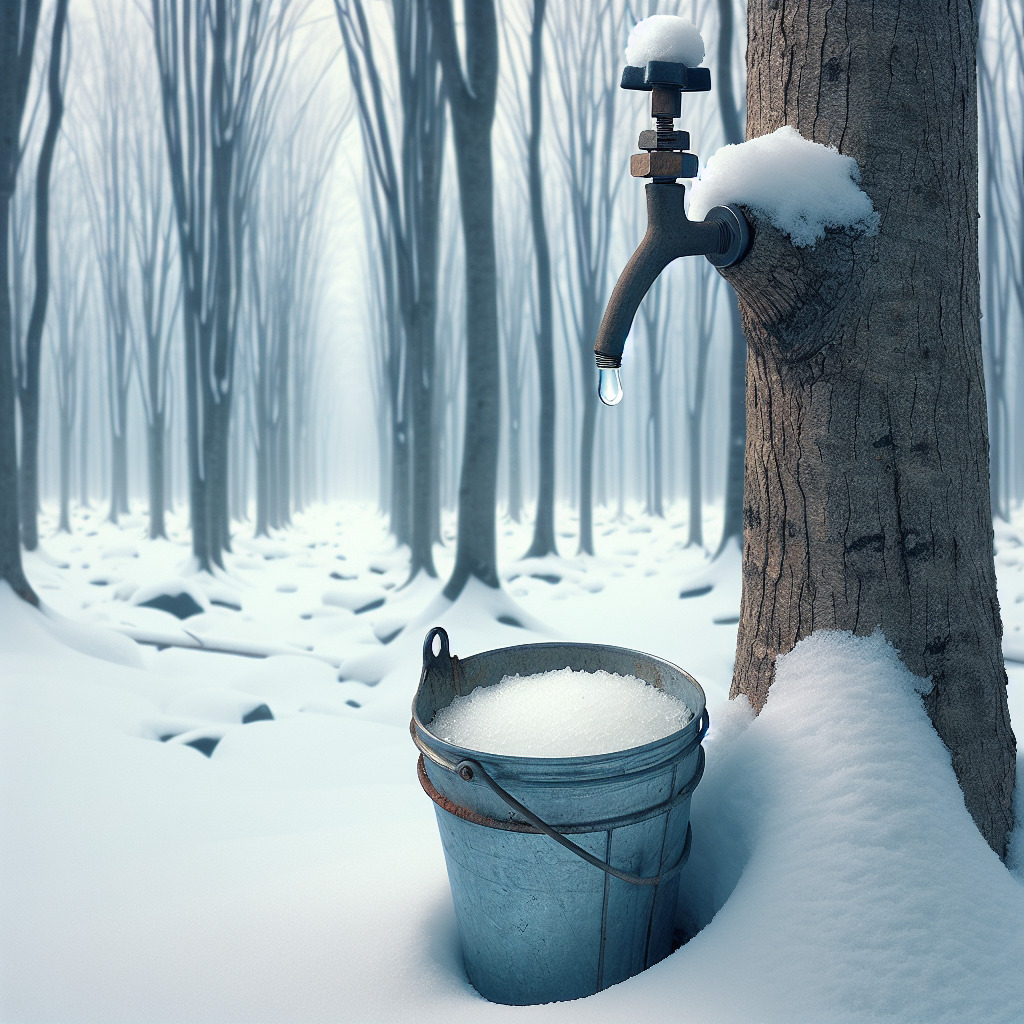A man named Don Walsh went very deep into the ocean a long time ago. He was the first person to go to the deepest part of the ocean with another man named Jacques. They went down in a special underwater boat called Trieste. It took them five hours to go down, down, down into the water. This was a very big deal because no one had ever done it before.
After that, Don Walsh helped other people learn about the ocean. He taught students, helped make the ocean safer, and told people about the dangers of going underwater. He was happy when another man did the same deep dive and when his son also went down into the deep water. Don Walsh helped us know more about the ocean. Now, because of new tools, we can learn even more about the deep water and how it helps our world.
Original news source: Don Walsh: The man who made the deepest ever dive (BBC)
Listen
Slow
Normal
Fast
Group or Classroom Activities
Warm-up Activities:
– Charades
Instructions: Write down words from the article (e.g., ocean, boat, dive, deep, water) on slips of paper. Students take turns picking a word and acting it out without speaking. The rest of the class tries to guess the word. This will help students associate the vocabulary with physical actions and reinforce their understanding.
– News Reporter Role-play
Instructions: Divide the class into pairs. One student is the reporter, and the other is Don Walsh. The reporter interviews “Don Walsh” about his journey to the bottom of the ocean. Provide students with question prompts such as “How did you feel going down into the ocean?” and “What did you see in the underwater boat?” This activity encourages speaking practice and use of past tense.
– Word Association
Instructions: Start with the word “ocean” and ask a student to say the first word that comes to mind related to the article. The next student continues with another associated word. Keep going around the class, building a chain of related words. This reinforces vocabulary from the article and encourages quick thinking in English.
– Sketch It
Instructions: Read a sentence from the article and have the students draw what they imagine based on that sentence. For example, “They went down in a special underwater boat called Trieste.” Students can share their drawings and describe them to the class, practicing their speaking and listening skills.
– Vocabulary Pictionary
Instructions: Write vocabulary words from the article on cards (e.g., ocean, Trieste, dive, safety, tools). Split the class into two teams. A student from one team draws a card and then draws the word on the board without speaking or writing letters. Their team must guess the word within a time limit. This game helps with word recognition and team-building.
Comprehension Questions:
1. What did Don Walsh do a long time ago?
2. Who went with Don Walsh into the ocean?
3. What was the name of the special boat they used?
4. How long did it take them to go down into the water?
5. Why was their trip a big deal?
6. What did Don Walsh do after he went into the deep ocean?
7. Who else was happy about going down into the deep water like Don Walsh?
Go to answers ⇩
Listen and Fill in the Gaps:
A man named Don Walsh went very deep into the ocean a (1)______ time ago. He was the (2)______ person to go to the deepest part of the ocean with another man named Jacques. They went down in a special underwater boat called Trieste. It took them five (3)______ to go down, down, down into the water. This was a very big deal because no one had ever (4)______ it before.
After that, Don Walsh helped other people learn about the ocean. He taught students, helped (5)______ the ocean safer, and told people about the dangers of going underwater. He was happy when another man did the same (6)______ dive and when his son also went down into the deep water. Don Walsh helped us (7)______ more about the ocean. Now, because of new (8)______, we can learn even more about the deep water and how it helps our world.
Go to answers ⇩
Discussion Questions:
Students can ask a partner these questions, or discuss them as a group.
1. What is the ocean?
2. Do you like to swim in water? Why or why not?
3. How would you feel if you went down, down, down into the deep water?
4. What is a boat?
5. Have you ever been on a boat? What was it like?
6. What do you think is at the bottom of the ocean?
7. Do you think it is important to learn about the ocean? Why?
8. What animals live in the ocean?
9. Would you like to see what is under the water? Why or why not?
10. Do you think it is scary to go deep into the ocean? Why or why not?
11. What is a tool? Can you name a tool?
12. How do you think tools can help us learn about the ocean?
Individual Activities
Vocabulary Meanings:
Match each word to its meaning.
Words:
1. ocean
2. deep
3. underwater
4. boat
5. dive
6. students
7. safer
8. tools
Meanings:
(a) A big, big, big pool of water
(b) Very, very far down in the water
(c) Under the water, like a fish
(d) Going down, down, down into the water
(e) A special thing that floats on the water
(f) Boys and girls who learn in school
(g) Things we use to help us do things
(h) Not as dangerous as before
Go to answers ⇩
Multiple Choice Questions:
1. Who was the first person to go to the deepest part of the ocean?
(a) Jacques
(b) Trieste
(c) Don Walsh
(d) Another man
2. What was the name of the special underwater boat they used?
(a) Don Walsh
(b) Trieste
(c) Jacques
(d) Ocean
3. How long did it take them to go down into the water?
(a) Ten hours
(b) Five hours
(c) One hour
(d) Two hours
4. What did Don Walsh do after his deep dive?
(a) Taught students
(b) Made the ocean safer
(c) All of the above
(d) Helped other people learn about the ocean
5. Who else went down into the deep water?
(a) Jacques
(b) Another man
(c) Trieste
(d) Don Walsh’s son
6. What did Don Walsh help us know more about?
(a) The ocean
(b) The sky
(c) The mountains
(d) The desert
7. What can we learn more about now?
(a) The ocean
(b) The sky
(c) The deep water
(d) The mountains
8. How did Don Walsh help make the ocean safer?
(a) By telling people about the dangers of going underwater
(b) By teaching students
(c) By going on deep dives
(d) None of the above
Go to answers ⇩
True or False Questions:
1. A man named Don Walsh went very deep into the ocean a long time ago.
2. He taught students and helped make the ocean safer.
3. This was not a big deal because everyone had done it before.
4. Now, because of old tools, we can learn even less about the deep water and how it hurts our world.
5. He went with another woman named Jacques in a regular underwater boat called Trieste.
6. Don Walsh was happy when another man did the same deep dive.
7. It took them five hours to go down into the water.
8. Don Walsh hindered other people from learning about the ocean.
Go to answers ⇩
Write a Summary:
Write a summary of this news article in two sentences.
Check your writing now with the best free AI for English writing!
Writing Questions:
Answer the following questions. Write as much as you can for each answer.
Check your answers with our free English writing assistant!
1. Who was the first person to go to the deepest part of the ocean?
2. What was the name of the special boat they used to go underwater?
3. How long did it take them to go down into the water?
4. What did Don Walsh do to help people after his big dive?
5. Why is Don Walsh happy about other people going deep into the ocean?
Answers
Comprehension Question Answers:
1. What did Don Walsh do a long time ago?
Don Walsh went very deep into the ocean.
2. Who went with Don Walsh into the ocean?
Another man named Jacques went with Don Walsh.
3. What was the name of the special boat they used?
They used a special underwater boat called Trieste.
4. How long did it take them to go down into the water?
It took them five hours to go down into the water.
5. Why was their trip a big deal?
Their trip was a big deal because no one had ever gone that deep before.
6. What did Don Walsh do after he went into the deep ocean?
After he went into the deep ocean, he taught students, made the ocean safer, and told people about the dangers of going underwater.
7. Who else was happy about going down into the deep water like Don Walsh?
Another man who did the same deep dive and Don Walsh’s son were happy about going down into the deep water.
Go back to questions ⇧
Listen and Fill in the Gaps Answers:
(1) long
(2) first
(3) hours
(4) done
(5) make
(6) deep
(7) know
(8) tools
Go back to questions ⇧
Vocabulary Meanings Answers:
1. ocean
Answer: (a) A big, big, big pool of water
2. deep
Answer: (b) Very, very far down in the water
3. underwater
Answer: (c) Under the water, like a fish
4. boat
Answer: (e) A special thing that floats on the water
5. dive
Answer: (d) Going down, down, down into the water
6. students
Answer: (f) Boys and girls who learn in school
7. safer
Answer: (h) Not as dangerous as before
8. tools
Answer: (g) Things we use to help us do things
Go back to questions ⇧
Multiple Choice Answers:
1. Who was the first person to go to the deepest part of the ocean?
Answer: (c) Don Walsh
2. What was the name of the special underwater boat they used?
Answer: (b) Trieste
3. How long did it take them to go down into the water?
Answer: (b) Five hours
4. What did Don Walsh do after his deep dive?
Answer: (d) Helped other people learn about the ocean
5. Who else went down into the deep water?
Answer: (d) Don Walsh’s son
6. What did Don Walsh help us know more about?
Answer: (a) The ocean
7. What can we learn more about now?
Answer: (c) The deep water
8. How did Don Walsh help make the ocean safer?
Answer: (a) By telling people about the dangers of going underwater
Go back to questions ⇧
True or False Answers:
1. A man named Don Walsh went very deep into the ocean a long time ago. (Answer: True)
2. He taught students and helped make the ocean safer. (Answer: True)
3. This was not a big deal because everyone had done it before. (Answer: False)
4. Now, because of old tools, we can learn even less about the deep water and how it hurts our world. (Answer: False)
5. He went with another woman named Jacques in a regular underwater boat called Trieste. (Answer: False)
6. Don Walsh was happy when another man did the same deep dive. (Answer: True)
7. It took them five hours to go down into the water. (Answer: True)
8. Don Walsh hindered other people from learning about the ocean. (Answer: False)
Go back to questions ⇧















